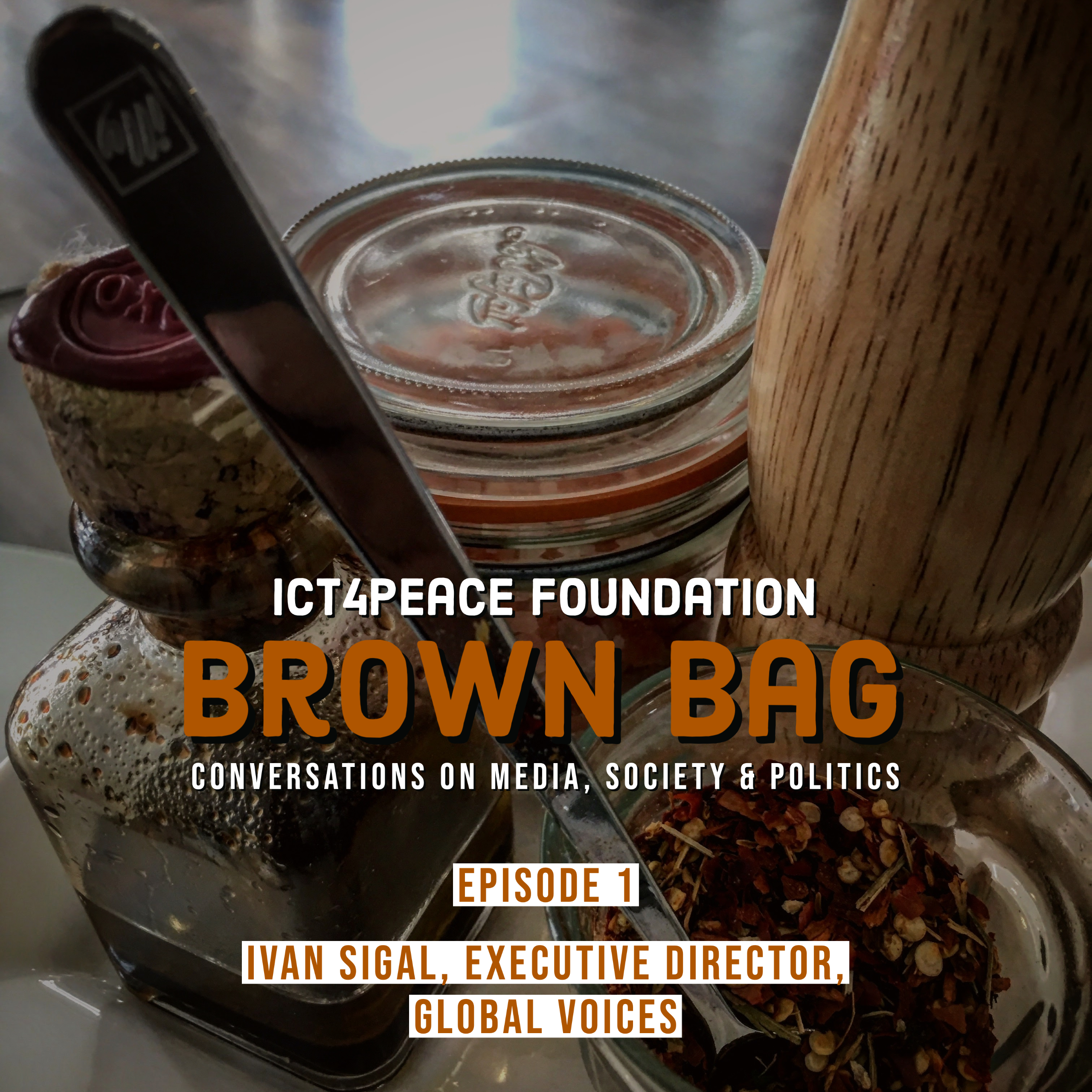ICT4Peace is delighted to launch the ICT4Peace Brown Bag Podcast Series on Social Media, Politics and Society from a Global South perspective, hosted by ICT4Peace Foundation’s Special Advisor, Dr Sanjana Hattotuwa.
We are proud that In Episode I, Sanjana Hattotuwa speaks with Ivan Sigal, the Executive Director of Global Voices and an outstanding expert on the impact of digitisation, including social media on Society. Listen to the podcast on SoundCloud here, or use the embedded player below.
Brown Bag is also on Spotify, Amazon Music and Apple Podcasts. This production of this podcast series is supported by the Daniel Gablinger Foundation.
In this podcast, Sigal begins by noting the degree to which Global Voices was tuned into early signals around the pandemic, and was subsequently transformed into a network that responded to it at local, regional, and obviously, global levels.
Sigal, digging into a very long study, and gaze around the growth of information disorders, and the digitisation of propaganda, looks at how today’s social media disinformation ecosystems are shaped by decades-old designs, evident at first offline, in traditional media, and then through websites.
Stemming from this, Sigal explores how today’s conversations, and media commentary which is dominated by captures from just both sides of the Atlantic, can benefit from work done elsewhere in the world, which have endured, and seen for far longer disinformation designs at play, which have gone on to be unleashed in the US, and UK. Sigal’s significant experience in working in the former USSR, and then in Southeast Asia is used to help listeners understand what was evident at the time, that is today a familiar design around disinformation targeted at Western democracies, and from within their own countries.
Given this experience, Sigal goes into detail about contemporary Russian disinformation campaigns, and deconstructs them based on what he had studied living, and working in the former USSR, and in regions influenced by the Kremlin’s politics. He goes into the tactics, tricks and techniques the Russians have for decades used to create dissonance, and weaken dissident voices. He maps how today, the scale, and reach of social media platforms enable these old, tried, and tested models of disinformation to be used anywhere in the world.
Sigal then grasps the nettle of how social media platforms, and networks, at scale, shape worldviews, in the context of both companies that are governed by a profit motive, and the degree to which products, and platforms are hostage to authoritarian fiat, and advertising. He then speaks to the model Global Voices employs to create, and curate content – and how for well over a decade, this has created connections that have helped those who are part of the networks – from producers to readers – better able to fight against truth decay.
Sigal goes on to critique social media platforms more robustly, and their enduring inability, and unwillingness, to learn clear lessons from failure in the past, leading to greater harms. As before, Sigal goes back to the so-called “Arab Spring” and explains why even at the time, this was a meaningless term. He proceeds to speak to new choreographies of social, and political developments, aided by online content which informs offline behaviours, in what’s a symbiotic relationship that benefits, as well as contests democracy.

